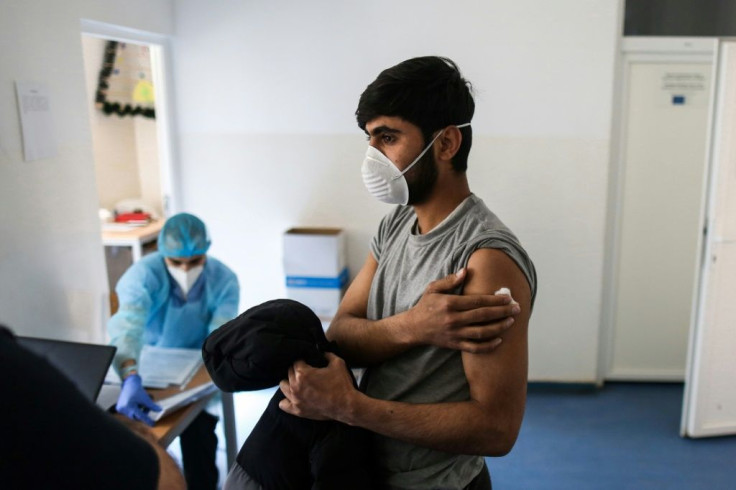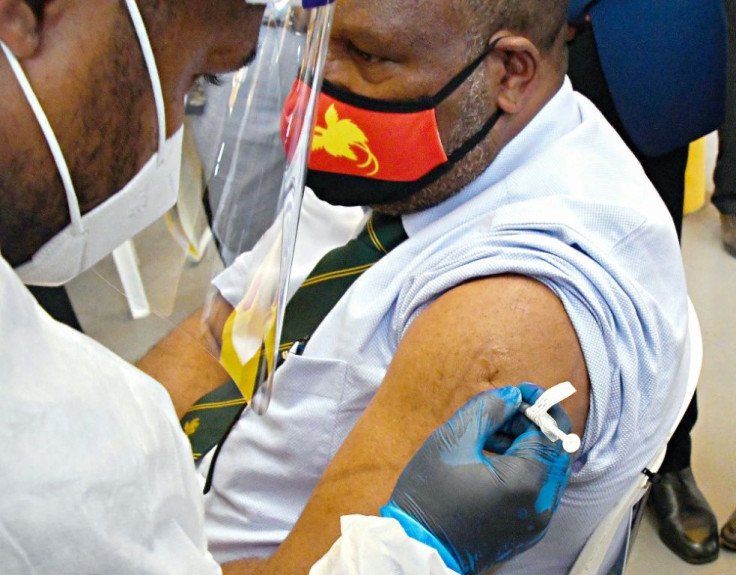Teen Blames COVID-19 Vaccine For His Guillain-Barre Syndrome, Doctor Calls It A Coincidence
KEY POINTS
- A teenager in texas blamed the COVID-19 vaccine for his Guillain-Barre Syndrome
- An infectious disease doctor said the diagnosis was a coincidence
- There is no known cause or cure for the rare disorder
A teenager in Texas has blamed the COVID-19 vaccine for giving him Guillain-Barre Syndrome, but doctors say it’s a coincidence.
Wyatt McGlaun, a teenager in The Woodlands, Texas, said he felt extremely weak and experienced difficulties walking a few weeks after receiving his first shot of the coronavirus vaccine. He was later admitted to CHI St. Luke’s Health Hospital in The Woodlands, where he was diagnosed with Guillain-Barre syndrome.
“I wanted to get the vaccine,” McGlaun said Monday in CNBC Houston. “I felt it was the right thing to do. I wanted to travel and enjoy my last summer before college. I just knew something didn’t feel right. It wasn’t getting any better.”
Montgomery County Health Authority Dr. Charles Sims, who is an infectious disease doctor with CHI St. Luke’s, said McGlaun’s diagnosis was likely a coincidence and noted that Guillain-Barre could have been caused by a viral or bacterial infection.
“There have been cases seen in people who have received the vaccine but they’re not at any higher rate than people who have not received the vaccine. Guillain Barre is seen in one-two people per million per year,” Sims said.
Wyatt’s family said they plan to report the incident to the CDC. As of early Tuesday, the agency had yet to confirm that the COVID-19 vaccine can negatively affect people with Guillain-Barre syndrome or other autoimmune conditions.
Guillain-Barre syndrome is a rare but serious disorder that causes the immune system to attack the nerves. It often manifests as weakness or tingling in the extremities, and can cause paralysis to the entire body.
It is unclear what causes Guillain-Barre syndrome. However, many patients report experiencing symptoms associated with infections, including respiratory, gastrointestinal, and Zika virus infections, six weeks prior to their diagnosis.
Signs and symptoms of the Guillain-Barre syndrome include:
- Weakness to legs
- Unsteady walking or inability to walk
- Difficulty speaking, chewing or swallowing
- Double vision
- Trouble controlling bladder or bowel function
- Rapid heart rate
- Difficulty breathing
There is no known cure for the disorder. However, there are several treatments that can ease and reduce its symptoms. Many recover from the syndrome. Between 60% to 80% of people diagnosed with the disorder are able to walk within six months.


© Copyright IBTimes 2024. All rights reserved.






















